Pakistan says agrees to IMF conditions on $1.1bn payout, deal still elusive
Pakistan says it has agreed to conditions laid down by the International Monetary Fund (IMF) to release about $1.1 billion in financial aid, while the UN financial body says discussions are still underway to release funds critical to keep the country's economy afloat.
Pakistan's finance minister Ishaq Dar said on Friday the payout was delayed due to “routine procedures” as the IMF team left the cash-strapped country after 10 days of hectic negotiations with the government.
Pakistan signed a $6 billion bailout package with the international lending body in 2019, with another $1 billion added to the programme a year later.
The first payment of $1.1 billion has been stalled since December amid political and economic turmoil in the South Asian country.
Dar said the government had received the Memorandum of Economic and Financial Policies (MEFP) from the IMF related to the completion of the ninth review of a $7 billion loan programme.
The MEFP describes all the conditions, steps and policy measures on the basis of which the two sides declare the staff-level agreement.
"The prime minister (Shehbaz Sharif) has said we're committed," Dar told reporters on Friday after the IMF team left the country. "We will implement whatever has been agreed upon between our teams."
The finance minister said the new government in Islamabad will make sure Pakistan "completes its second IMF program in its history".
The IMF and the Pakistani government held talks between January 31 and February 9. As the visiting delegation departed, there was some confusion about the outcome of the talks, as reported by local media.
Dar, however, insisted there was no confusion, and said the IMF team gave them the MEFP before leaving "so we could look at it over the weekend," adding that the government and IMFd officials would hold a virtual follow-up meeting on Monday.
“I am confirming that the MEFP draft has been received by us at 9 a.m. today,” he remarked. “We will completely go through the [MEFP] over the weekend and will hold a virtual meeting with [Fund officials]. It will obviously take a few days.”
The Pakistan IMF Mission Chief Nathan Porter, in a statement, confirmed talks were continuing, adding that considerable progress had already been made.
According to one of the conditions set by the IMF, the Pakistani government will have to implement fiscal measures, including taxation, to raise 170 billion Pakistani rupees ($629.63 million) worth of revenue.
The South Asian country has already shifted back to a market-based exchange rate and hiked fuel prices, which are among the conditions set by the IMF.
The injecting of the fund into the Pakistani economy is extremely necessary for preventing Pakistan from defaulting on external payment obligations.
According to analysts, an IMF deal paves the way for other organizations and governments to provide funds to Pakistan.
The fiscal adjustments demanded by any deal, however, are likely to fuel record-high inflation, which hit 27.5 percent year-on-year in January.
"If this drags on for, say, longer than a month, things get more difficult as our forex reserves have reached a critical level," Pakistan's former central bank deputy governor Murtaza Syed was quoted as saying by Reuters.
"The government has not only wasted over five months in realizing the gravity of the situation, it is still sleepwalking the country into an economic abyss," said Sakib Sherani, who served as the finance ministry's principal economic adviser in 2009-10.
Last week, Prime Minister Sharif called Pakistan's economic situation "unimaginable", and described the IMF bailout conditions "beyond imagination".
For a country with a $350 billion economy, facing a balance-of-payments crisis, along with its foreign exchange reserves dipping to less than three weeks of import cover, the IMF funding comes as a crucial relief.
Earlier, finance ministry officials had told Reuters that the government and the IMF were discussing what to do with the energy sector's almost $15 billion debt to the government.
They said Pakistan has submitted a plan to cut the debt in phases through price hikes and dividends from gas companies, but the IMF was demanding a clearer path forward.
Meanwhile, in addition to the stalled portion, another sum of $1.4 billion remains of the $6.5 billion bailout program, which is due to end in June.
D-8’s role in Iran’s economy after Cairo summit
China slams US as ‘war-addicted’ threat to global security
China ‘firmly opposes’ US military aid to Taiwan
VIDEO | Press TV's News Headlines
President Yoon Suk Yeol to be removed from office
At least 19 Gazans killed by Israeli airstrikes since dawn: Medics
Leader: Iran neither has nor needs proxy forces
US fighter aircraft shot down ‘in friendly fire’ amid aggression on Yemen


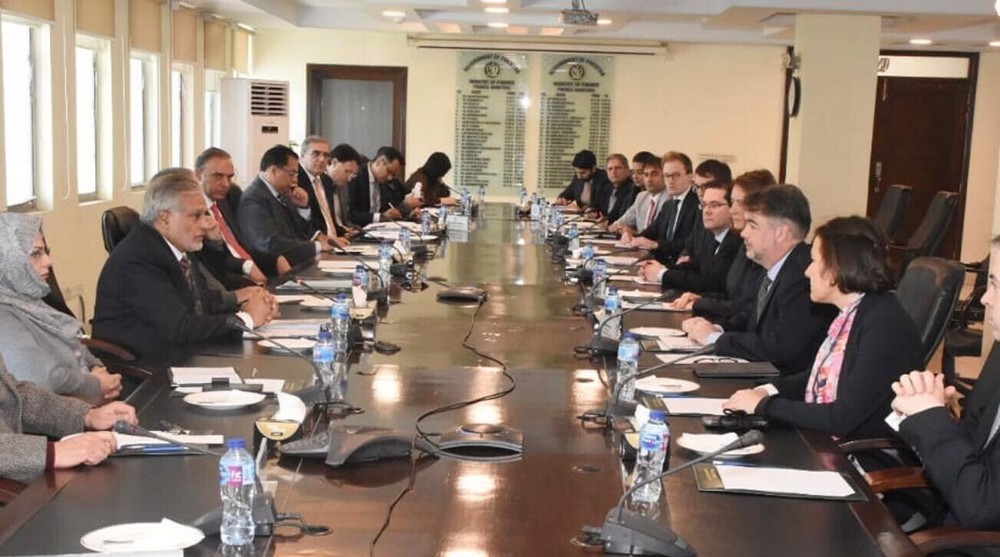
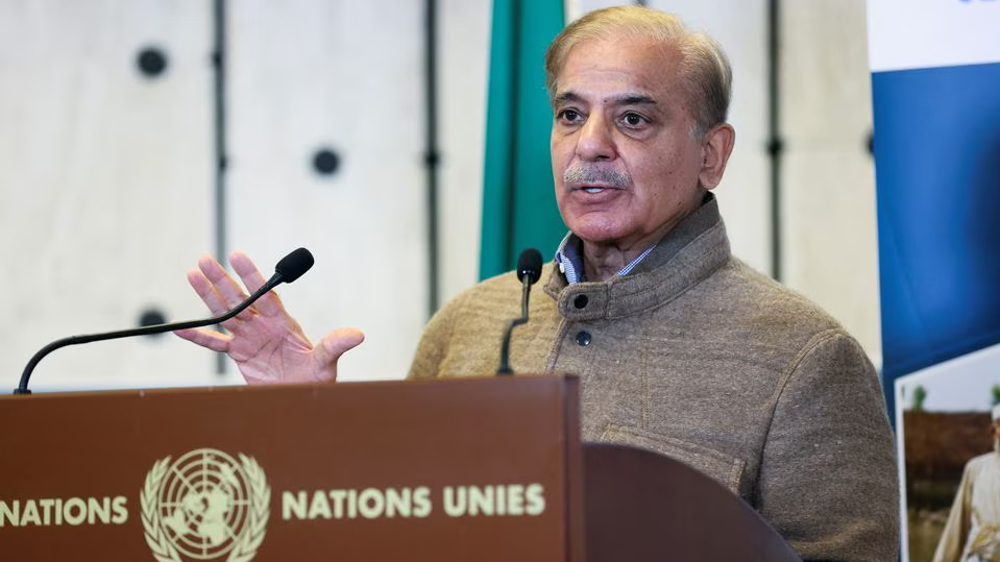
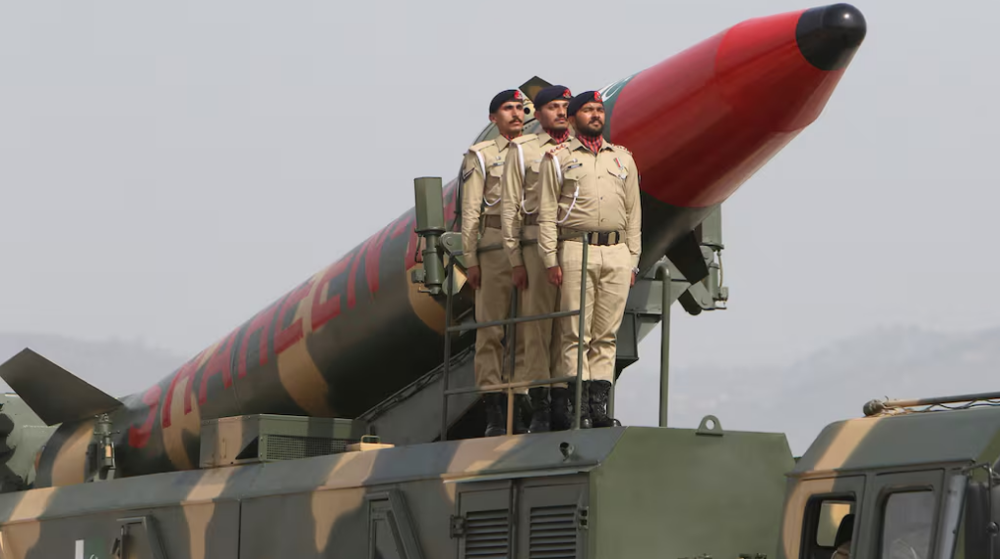

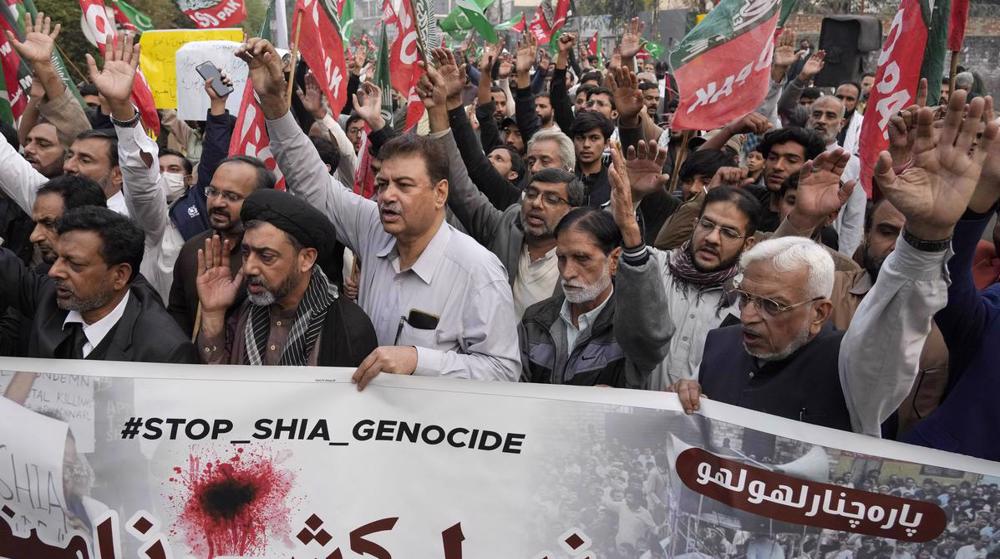






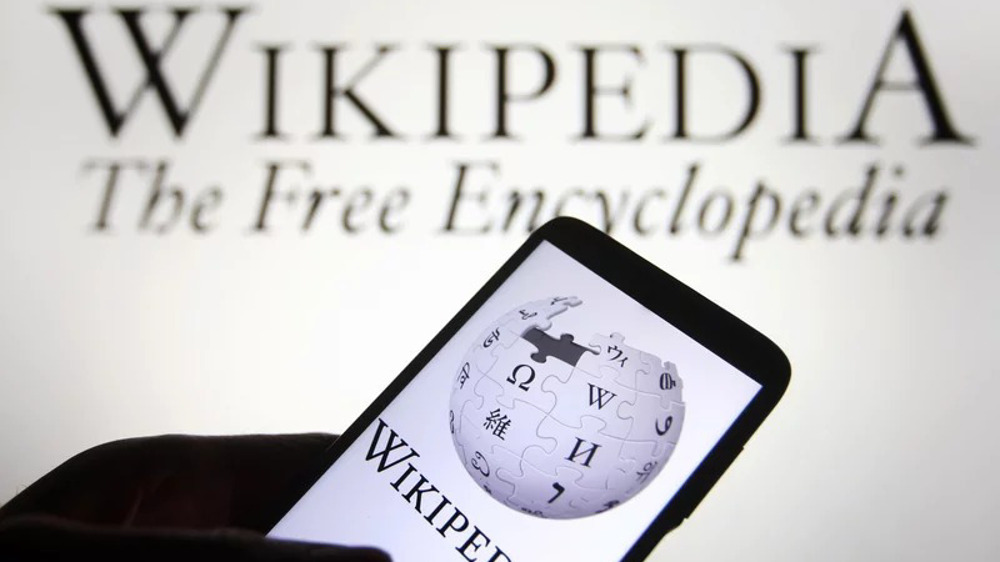
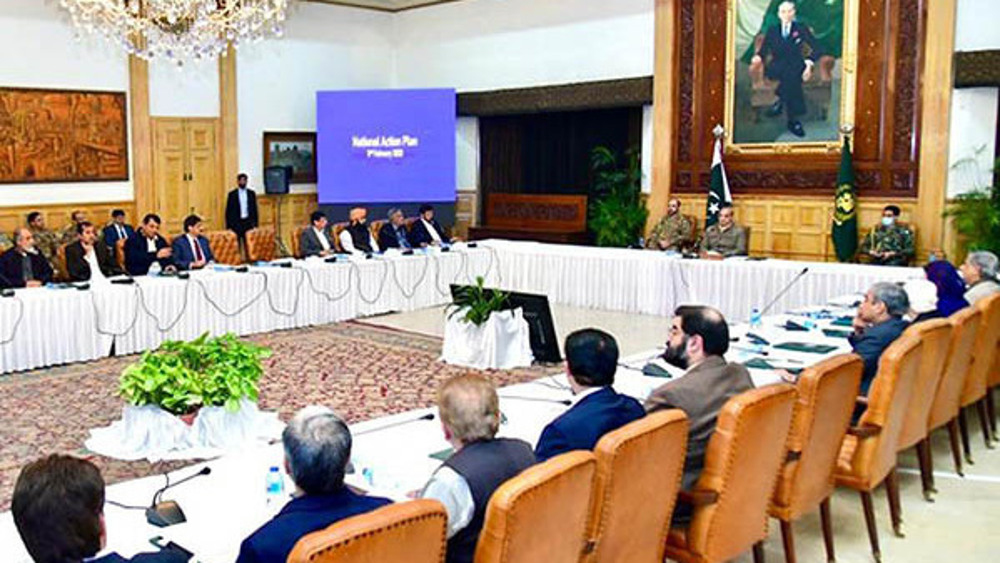

 This makes it easy to access the Press TV website
This makes it easy to access the Press TV website